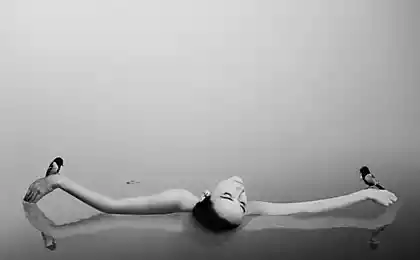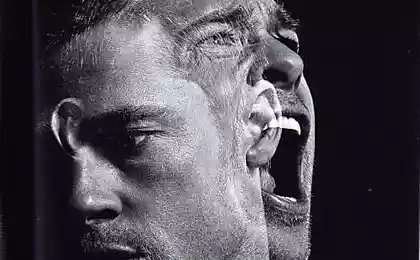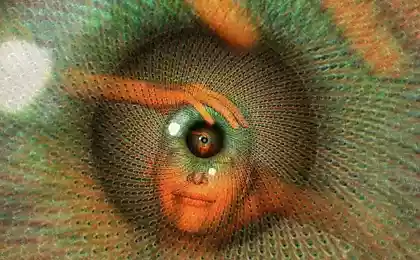476
Emotions, Behavior and Circumstances: the foundations of mindfulness
Emotions, Behavior and Circumstances interact with each other. These interactions form the information templates that you need to identify and use for the development of their awareness. The most effective thing you can do in the quest of mindfulness is to understand the correlation between your EPO, collect data about how these three intertwined elements influence each other and appear together or separately.
"E" means "emotions". Emotions are what you feel, and what you have in mind. It can be far more complicated than "Yes, I'm in excellent condition" or "today I'm sad." You are placed together a lot of emotions on various occasions; then, as you're two different things, not like when you do the same and smile for another reason; and none of the States does not seem to concern some crucial issue. It happens like this: are you worried about the evaluation of the results of your work and enjoy your purchase, and look forward to a visit to cousin next week, and at the same time annoyed that his leg hurt, and all this against the background of funny songs on the radio. For simplicity, I added here and less emotional understanding also: what thoughts come to your mind, what are the stages of reasoning you follow, what attracts your attention in the world.

"P" means "behavior". In this article a behavior means that you are actually doing. This includes the very small category of those things that you actually set out to do — and almost started, but did not because of external circumstances or changed their plans after receiving new information. This is important. Fleeting ideas and intentions come to us constantly, and if you firmly and finally decide which one you will follow in the end, you will only subconsciously selected fragments of unfinished plans. This is particularly problematic due to the fact that weaker intentions will be rejected by a small external obstacles to a much greater extent. Don't worry about "real" plans, which discards the filtration process. You're trying to learn yourself as a whole, and not the model itself, which was valiantly trying to do something good and was stopped by circumstances; if these are rejected, the plans have been typical for you, then they will affect your actual behavior. Trust the law of averages.
"On" means "circumstances". That's what's going on around you (Which hour? What's going on in your life now, happened recently and what might happen in the near future: major events, minor changes, plans for later, what you say friends? Where you are: warm or cold, light or dark, windy, calm, quiet, noisy, is there any smell, whether there are special signs at the scene, the fuss around whether colourful or grey, natural, artificial, beautiful, ugly, spacious, comfortable, wet, dry, deserted, crowded, formal, informal, familiar, new, cluttered or neat?). It also includes your actions and what is going on inside you — what is usually referred to purely physical phenomena (You are exhausted, tired after the flight, in a condition of drug intoxication, want to drink or eat, you're in pain, you are unwell, drunk, energetic, itches, lively, excited or cold? You leaned back in his chair, hiding in the basement, dance, hike, play the drums or scuba diving?) Circumstances keep track a little easier than emotions and behavior. If you have an urgent and clear issue, it would be wise to solve it, and then do awareness. And if certain problems associated with some physical ailments, you can ignore, to ignore pain or severe hunger is hard and you deal with them immediately. Don't neglect circumstances when doing exercises on the line, just because you feel like it is only "the contents of your skull." SAR (seasonal affective disorder or "winter depression") is a sufficient proof that the environment can seriously affect our feelings. And isn't it strange, in the end, if you feel and act the same when they dance at the ball and when set the timer on the microwave to reheat the soup, and when taken hostage during the seizure of the Bank?
All these aspects are interdependent:
E → P: Your emotions affect behaviour almost directly — the emotions, in the end, include your thoughts and feelings, and do not depend on pure reflex actions, which appear under their influence.
About → P: Circumstances also obviously affect the behavior. You can't push on the gas pedal, if you have feet; you can't take a little tapenade, if it is not; and it is difficult for me to spin in a skirt if I'm wearing a sweatshirt.
E → About: Emotions can change your circumstances through your behavior, and what is happening with your body (we are all familiar with how stress, for example, may affect health), and through others nonverbal means.
P → A: Your behavior is obviously influenced by the circumstances: break the window, and then there will be a draft. Say something, and people most likely will hear you and respond.
P → e: Behavior can affect emotions through close bilateral contacts (smile and your emotions will smile with you!) and by the effect of coherence, which makes you similar to the person whose conduct you are imitating.
Of → e: Circumstances affect your emotions, either consciously through knowledge and information ("My birthday! Hurrah!"), and unconsciously, by means of physical effects (if you worked for a long time, ignoring the dream, then it is unlikely you will be happy with the result).
So don't just cling to how they appear together. Notice also a causal relationship. Until you develop awareness enough to detect them directly, you may need a certain retrospective analysis in order to understand the chain harder than "I was hungry and thought about cheese, so I ate a little bit." And note the interesting omissions. If you are experiencing what is commonly considered to be sad, and you can't detect any sadness in their emotions or physical reactions, it is very important data.
These relations form the building blocks for your first refinement of the model, which is based on source data that you extracted from external sources. published
P. S. And remember, just changing your mind — together we change the world! © Join us at Facebook , Vkontakte, Odnoklassniki
Source: ezotera.ariom.ru/2015/12/13/epo.html
"E" means "emotions". Emotions are what you feel, and what you have in mind. It can be far more complicated than "Yes, I'm in excellent condition" or "today I'm sad." You are placed together a lot of emotions on various occasions; then, as you're two different things, not like when you do the same and smile for another reason; and none of the States does not seem to concern some crucial issue. It happens like this: are you worried about the evaluation of the results of your work and enjoy your purchase, and look forward to a visit to cousin next week, and at the same time annoyed that his leg hurt, and all this against the background of funny songs on the radio. For simplicity, I added here and less emotional understanding also: what thoughts come to your mind, what are the stages of reasoning you follow, what attracts your attention in the world.

"P" means "behavior". In this article a behavior means that you are actually doing. This includes the very small category of those things that you actually set out to do — and almost started, but did not because of external circumstances or changed their plans after receiving new information. This is important. Fleeting ideas and intentions come to us constantly, and if you firmly and finally decide which one you will follow in the end, you will only subconsciously selected fragments of unfinished plans. This is particularly problematic due to the fact that weaker intentions will be rejected by a small external obstacles to a much greater extent. Don't worry about "real" plans, which discards the filtration process. You're trying to learn yourself as a whole, and not the model itself, which was valiantly trying to do something good and was stopped by circumstances; if these are rejected, the plans have been typical for you, then they will affect your actual behavior. Trust the law of averages.
"On" means "circumstances". That's what's going on around you (Which hour? What's going on in your life now, happened recently and what might happen in the near future: major events, minor changes, plans for later, what you say friends? Where you are: warm or cold, light or dark, windy, calm, quiet, noisy, is there any smell, whether there are special signs at the scene, the fuss around whether colourful or grey, natural, artificial, beautiful, ugly, spacious, comfortable, wet, dry, deserted, crowded, formal, informal, familiar, new, cluttered or neat?). It also includes your actions and what is going on inside you — what is usually referred to purely physical phenomena (You are exhausted, tired after the flight, in a condition of drug intoxication, want to drink or eat, you're in pain, you are unwell, drunk, energetic, itches, lively, excited or cold? You leaned back in his chair, hiding in the basement, dance, hike, play the drums or scuba diving?) Circumstances keep track a little easier than emotions and behavior. If you have an urgent and clear issue, it would be wise to solve it, and then do awareness. And if certain problems associated with some physical ailments, you can ignore, to ignore pain or severe hunger is hard and you deal with them immediately. Don't neglect circumstances when doing exercises on the line, just because you feel like it is only "the contents of your skull." SAR (seasonal affective disorder or "winter depression") is a sufficient proof that the environment can seriously affect our feelings. And isn't it strange, in the end, if you feel and act the same when they dance at the ball and when set the timer on the microwave to reheat the soup, and when taken hostage during the seizure of the Bank?
All these aspects are interdependent:
E → P: Your emotions affect behaviour almost directly — the emotions, in the end, include your thoughts and feelings, and do not depend on pure reflex actions, which appear under their influence.
About → P: Circumstances also obviously affect the behavior. You can't push on the gas pedal, if you have feet; you can't take a little tapenade, if it is not; and it is difficult for me to spin in a skirt if I'm wearing a sweatshirt.
E → About: Emotions can change your circumstances through your behavior, and what is happening with your body (we are all familiar with how stress, for example, may affect health), and through others nonverbal means.
P → A: Your behavior is obviously influenced by the circumstances: break the window, and then there will be a draft. Say something, and people most likely will hear you and respond.
P → e: Behavior can affect emotions through close bilateral contacts (smile and your emotions will smile with you!) and by the effect of coherence, which makes you similar to the person whose conduct you are imitating.
Of → e: Circumstances affect your emotions, either consciously through knowledge and information ("My birthday! Hurrah!"), and unconsciously, by means of physical effects (if you worked for a long time, ignoring the dream, then it is unlikely you will be happy with the result).
So don't just cling to how they appear together. Notice also a causal relationship. Until you develop awareness enough to detect them directly, you may need a certain retrospective analysis in order to understand the chain harder than "I was hungry and thought about cheese, so I ate a little bit." And note the interesting omissions. If you are experiencing what is commonly considered to be sad, and you can't detect any sadness in their emotions or physical reactions, it is very important data.
These relations form the building blocks for your first refinement of the model, which is based on source data that you extracted from external sources. published
P. S. And remember, just changing your mind — together we change the world! © Join us at Facebook , Vkontakte, Odnoklassniki
Source: ezotera.ariom.ru/2015/12/13/epo.html























